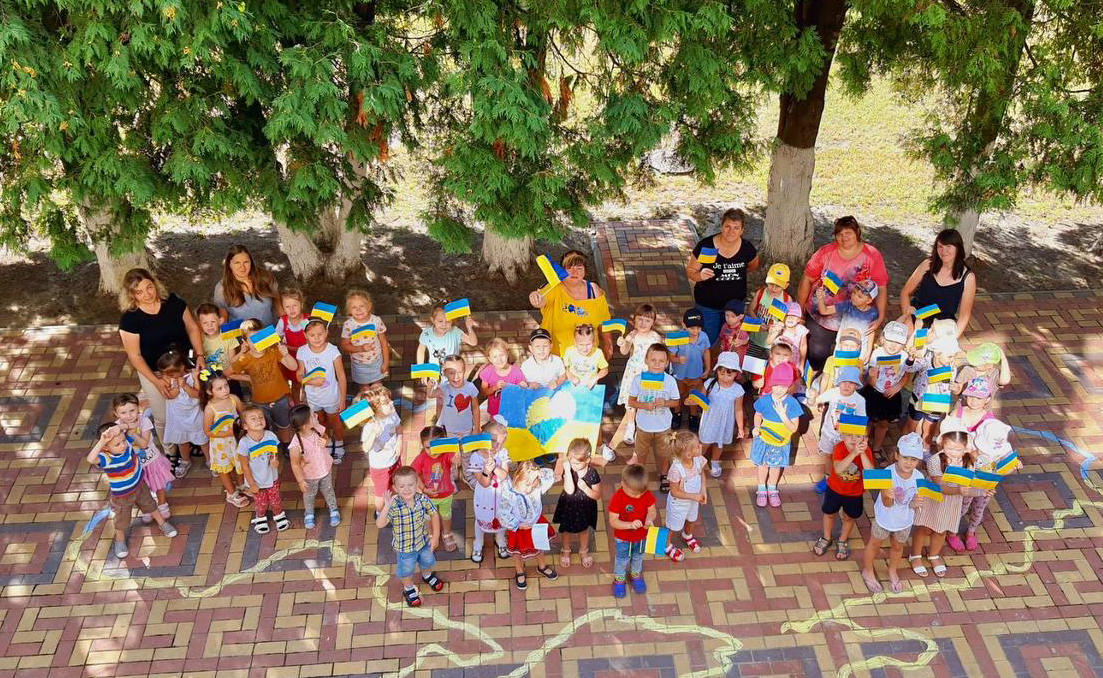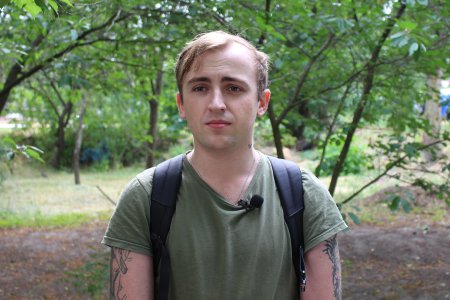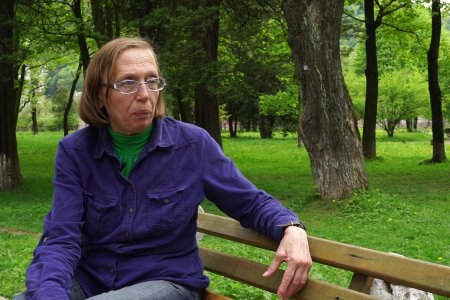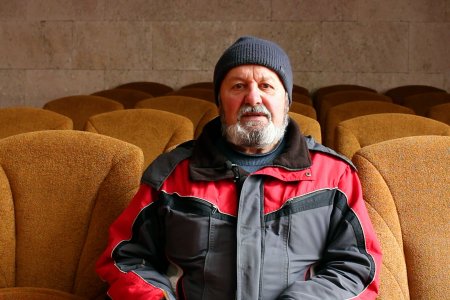My name is Dmytro Hapchenko. I work in the Bucha City Council as a business manager. From the very beginning of the full-scale war, on 24 February, the city of Bucha and all the residents felt the war because they heard many explosions. On the 24th, the assault on Hostomel airport, located on the territory of the Bucha community, had already begun. The airport itself is near the village of Bestavytsia. All our residents immediately felt the war, and invaders surrounded the city because they very quickly reached Bucha.
The first executions of civilians who tried to leave the city began on 25 February.
Briefly speaking about that period, we had a situational center organized (based on our Center of Administrative Services and the City Council). For a very long time, as long as it was possible, all public utilities worked. The city authorities were constantly in Bucha and did not leave the occupied territory. We tried to help everyone who remained in the city as much as possible. Most people fled through the first corridors from 10 to 14 March. Less than 10% remained whom we tried to support during the occupation.
After the end of the occupation, the first question was about helping the residents who lived there all the time — someone without regular food and water.
Therefore, on 3 April, we organized a humanitarian headquarters to help people. First of all, we helped with medications because this was the main problem. Many died precisely because the stressful situation aggravated their illnesses, and getting the necessary medical care was impossible. Many people perished because of this. In addition, the occupiers killed on the streets for no reason — they shot people for no reason. Now, we are establishing many facts. We want to create a Memorial with a story about every dead person because it was their fate. In general, every crime must be properly recorded so that everyone knows what happened during the occupation.
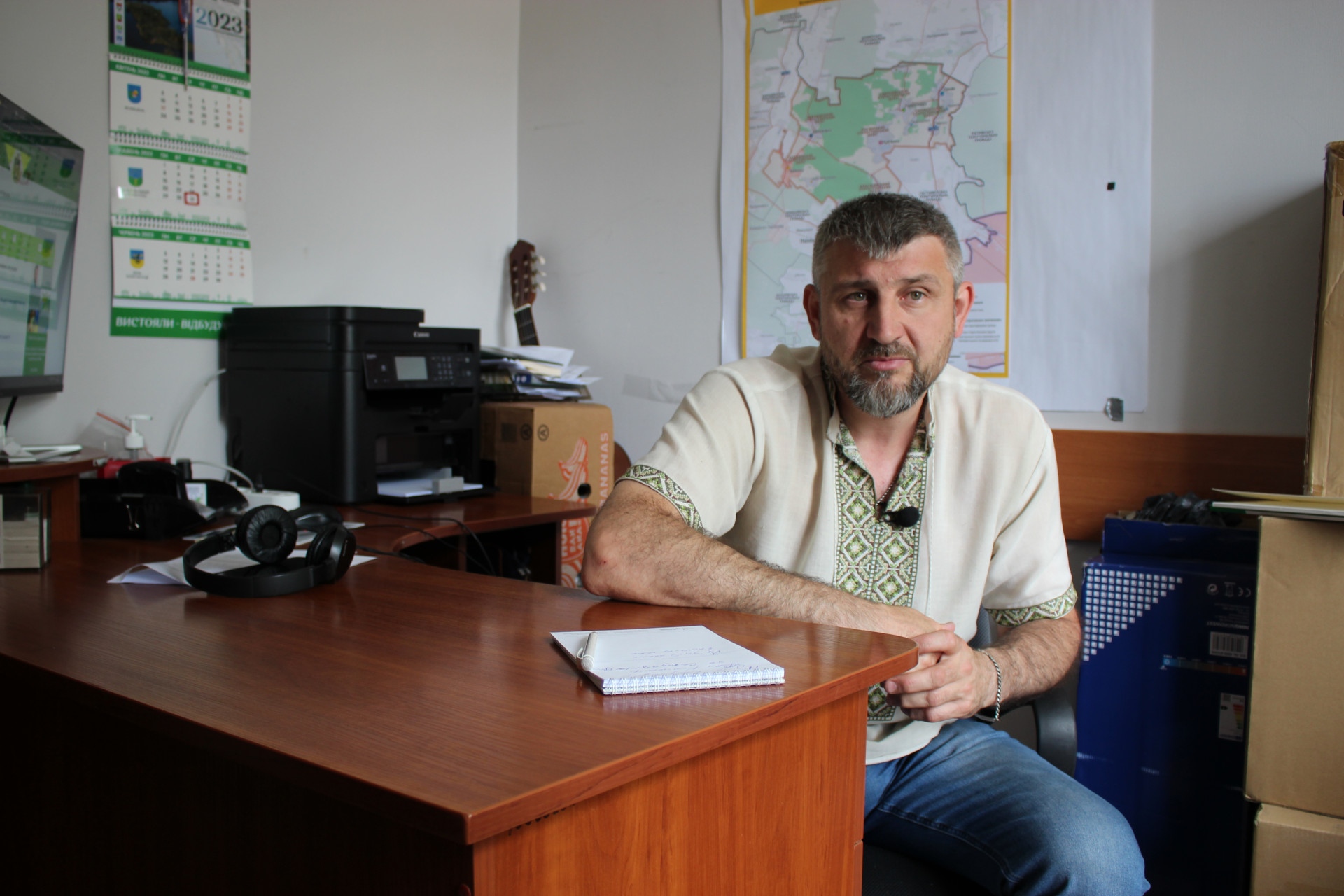
After de-occupation, after the liberation of our territory by the Armed Forces of Ukraine, the first question was to help the residents and try to tackle all the destruction. First, we concentrated on helping people and then began taking care of property so that people could somehow continue to live in the city or return. Therefore, much work was done to restore the premises or at least stop the destruction. It was the minimum. First, we covered holes in the roofs or windows. Then came the assistance programs from our international partners, international donors, and sister cities, which helped us restore and repair the most affected facilities.
Today, most of the repair issues have already been resolved; this includes replacing windows and roofs and some minor repairs to restore people’s homes completely.
But there remains the problem of those houses that were destroyed entirely. We have already restored part of them — Vokzalna Street, where, on the 27th, the column of invaders was defeated. There were many damaged houses, but they have already been restored. The interior work is being completed today, but you can already see what this street looks like. We continue to work on other issues, again, on restoring those houses that were utterly destroyed. There are still quite a lot of them. However, nothing visually reminds you of what had happened if you walked around the city today. Of course, some objects remain where the consequences of shelling and destruction are visible, but the destroyed objects repair have been put on hold. There are much fewer of them left.
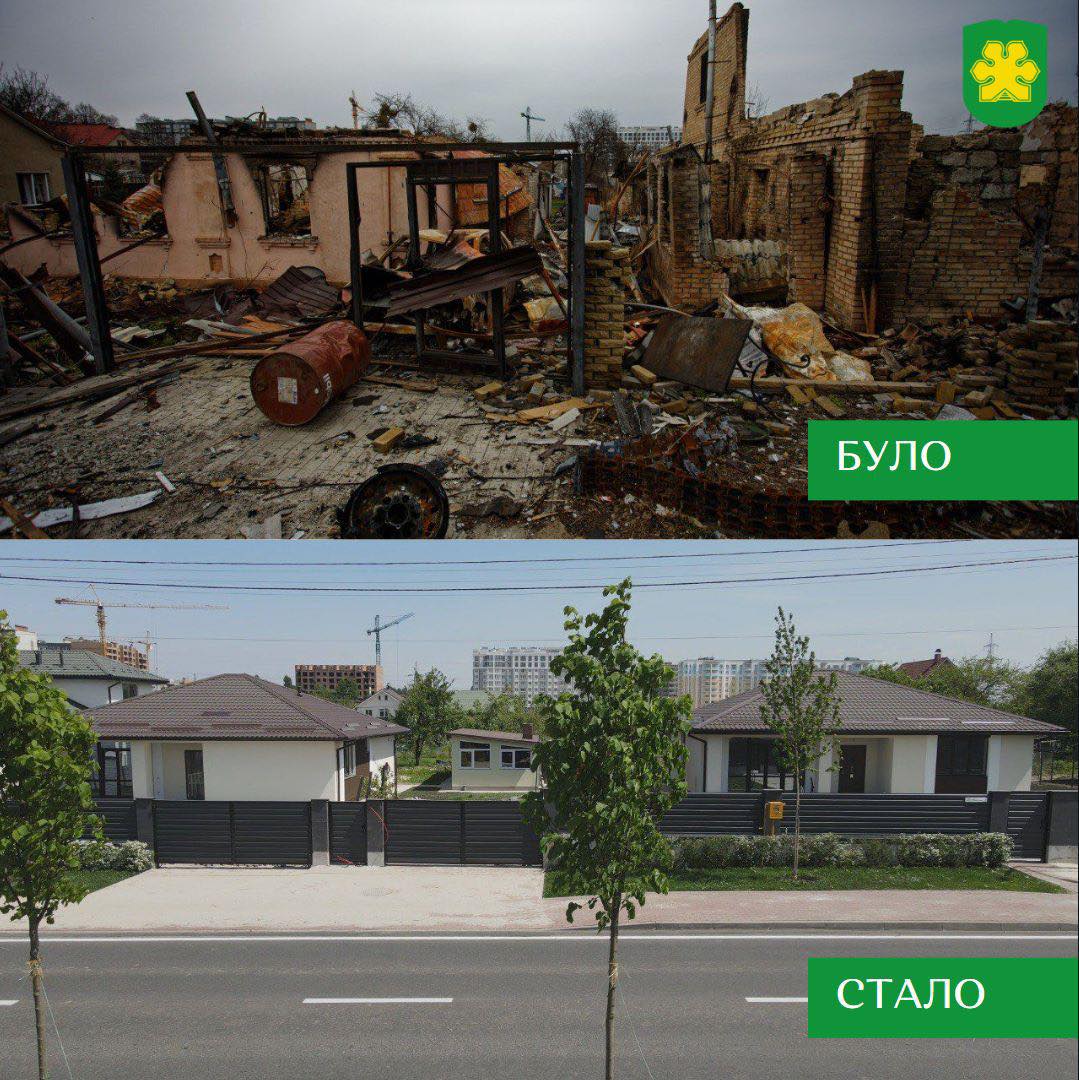
I will say right away that most people we met during the occupation had this specific quality — they helped each other. It wasn’t like everyone was on their own, but everyone was united. They prepared food in one place and helped each other.
By the way, we are now finding out some of the circumstances surrounding the deaths of people who remained in the city: they died while helping others.
If a person knew that somewhere, an acquaintance or a person in need of help, they tried to get to these people. And thus, people came under fire because if a person moved around the city, it was dangerous. In general, moving around after 3 March was simply risky. I’m not even talking about transport; just walking was dangerous. We have cases where a person went out onto the balcony to take some canned food for dinner and died from a sniper who killed people for no reason.
A lot has changed now because everyone is working. Of course, many volunteers are currently working for victory, helping the front and our Armed Forces. Today, we know what happened in Kakhovka. We have also created a center where many people bring aid. And we send it to the South to help our people in a difficult situation.
I stayed in the city and remained on the City Council. We tried to work in our 24/7 call center for as long as possible. Until 4 March, we were indoors. After we realized it was dangerous, we worked near the premises. The occupiers were already moving around the city, and, of course, they came to us. We understood that if one of us ended up with the occupiers, it could be helpful for them. We did not want to give them this opportunity, so most of us were in a nearby hospital. And we generally tried to continue working there because it was safer. Let’s say we pretended to be doctors so that the occupiers would not understand who we were.
On 15 March, unfortunately, we were captured. What saved me was that they didn’t know who I was. They took us near the City Council. We explained that there were food leftovers and we were helping people.
But they didn’t believe it. There were six of us. Three City Council security guards, two employees, me, and my colleague Serhii. And another volunteer, Leonid, who also helped people. On 15 March, we were transferred to their headquarters and sat there, awaiting interrogation. As they said, there had to come some captain who had to interrogate us. And we waited. Then, we did not understand what could happen to us because we did not yet know about the terrible things that occurred in Yablunska 144 and other city areas, where people were shot for no reason.
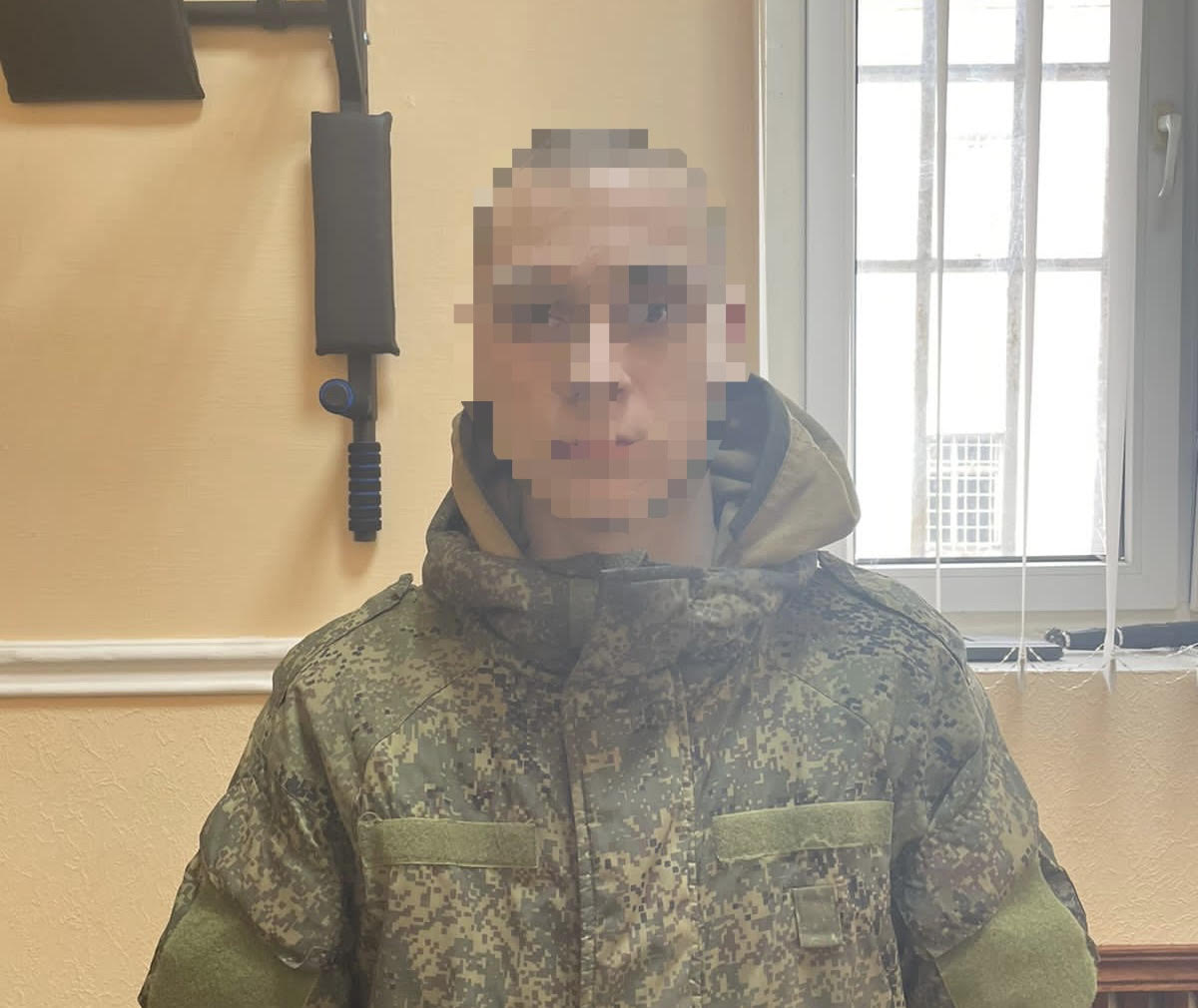
But we were lucky that this captain didn’t arrive. In the morning, we were taken down to the basement. Since they were busy with their issues (in the morning, some of the military left, and some stayed at the house), we managed to sneak away through the arch near our basement exit. Of course, after this, we knew any contact with the occupiers was generally undesirable for us and tried to avoid them.
We were not required to document all crimes, and there was no such opportunity because this is more a question for law enforcement agencies. But now we want to preserve all information about people and the circumstances of their deaths. Today, we have information about at least 500 deaths, which are already fully documented. In addition, about 75 people are lying in the unidentified section. We don’t know yet how they died or who they are.
There is partial information about some people, but further searches and DNA sampling are now being carried out to establish who they are. There is also information about 70 people, but we cannot confirm where the person died. We know they died, but where exactly, what the cause of death was, and how it happened — these questions are in the works. In fact, today, we have about 700 people in our database to study and establish all these facts.
We are not talking about wounded people because this is generally a separate category. There are even more of them. However, their identities are challenging to establish because only they have information about the injuries. Some may not even contact law enforcement because the injuries were minor. We know of several such cases, some of which I witnessed. For example, my friend was wounded. I provided him with direct medical care. There are cases that we know about because we were told about them. Children were wounded. We have the information, but we are still in the process of working out and documenting all these facts.
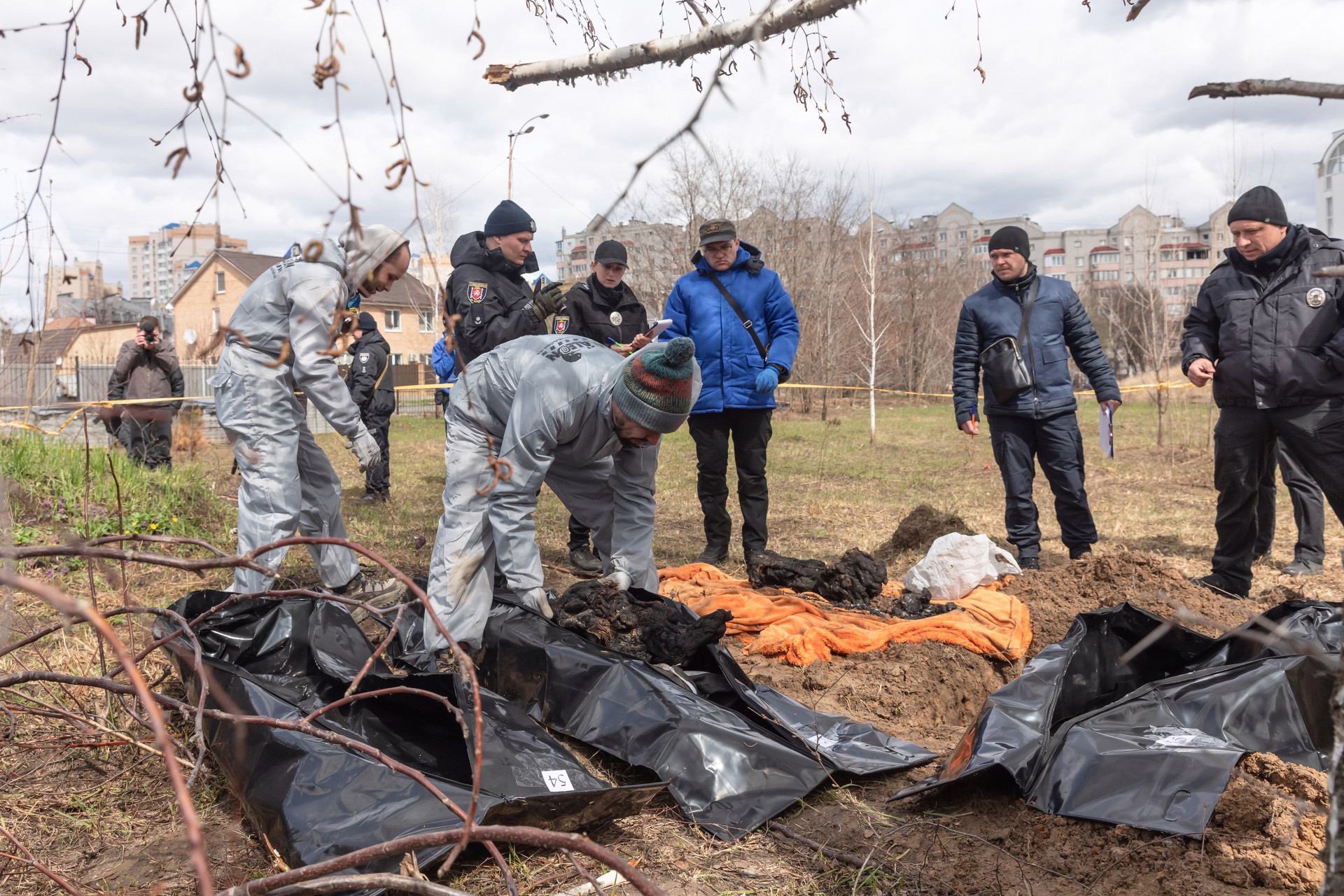
Currently, we have more than five thousand cases of damaged property. As for the destroyed houses, there are more than 200 private houses and several apartment buildings. I can’t say for sure because architects know this information better. I know that more than two apartment buildings must be restored entirely, built from the start. One house has been damaged under its foundation; we have already removed what remains. The second house is in disrepair. The issue is currently being considered. I won’t say about other houses, because several houses are being studied: whether it is possible to leave them, they need to be rebuilt or built from the start.
The occupation affected people. We have a psychological help center where people come and receive psychological help. This way, people somehow return to normal.
I’ll say about myself: I needed about six months to reach the level of peace I had before the full-scale invasion. This manifested in a stressful situation, and I could stay awake for several nights. Sometimes, I have terrible dreams. This, of course, leaves its mark; it may take five or more years to somehow reach [the previous level]. The main thing is for the war to end. Which, I hope, will end with our victory soon. Then, we can talk about some psychological recovery for everyone because we understand that now there is constant anxiety and continuing shelling. But our people are already accustomed to this and are trying to live in the existing realities.
